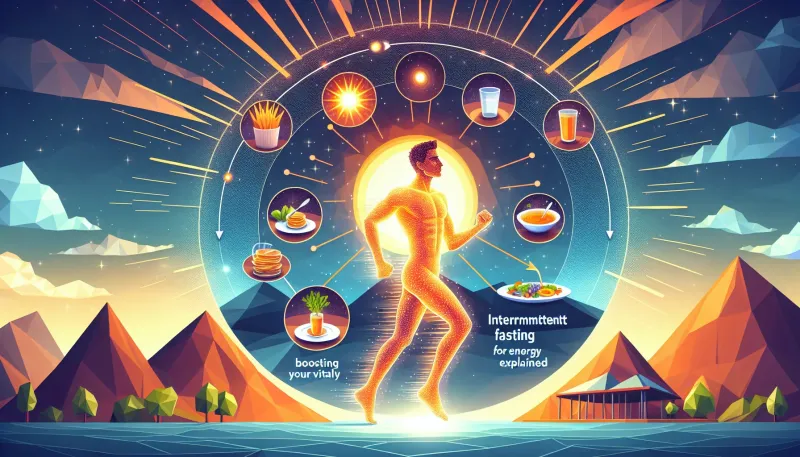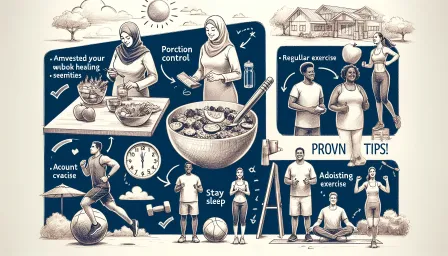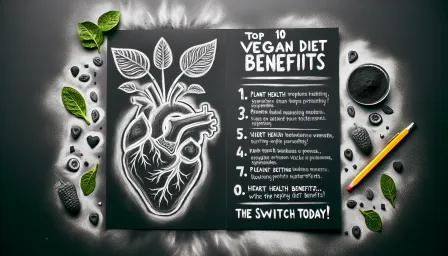Boost Your Vitality: Intermittent Fasting for Energy Explained

Unlock your energy potential with intermittent fasting for vitality. Learn how this approach can enhance your energy levels and overall well-being.
Intermittent fasting has gained considerable attention for its potential health benefits, including weight loss, improved metabolic health, and even longevity. But did you know that intermittent fasting can also have a profound impact on your energy levels? In this article, we'll explore how intermittent fasting for energy works, the scientific principles behind it, and practical tips for incorporating this approach into your daily life.
Understanding Intermittent Fasting
Before diving into the specifics of how intermittent fasting boosts energy, it's important to understand what intermittent fasting is. Intermittent fasting (IF) is an eating pattern that cycles between periods of fasting and eating. Unlike traditional diets that focus on what you eat, IF focuses on when you eat.
Types of Intermittent Fasting
There are several methods of intermittent fasting:
- 16/8 Method: Fast for 16 hours and eat during an 8-hour window.
- 5:2 Diet: Eat normally for 5 days a week and consume only about 500-600 calories on the remaining 2 days.
- Eat-Stop-Eat: Involves fasting for 24 hours once or twice a week.
- Alternate-Day Fasting: Alternating between fasting days (typically eating only 500 calories) and non-fasting days.
The Science Behind Intermittent Fasting and Energy
One of the key ways intermittent fasting boosts energy is by improving mitochondrial function. Mitochondria are the energy powerhouses of cells, and their efficiency can significantly impact your overall energy levels. Here's how intermittent fasting can help:
Enhanced Mitochondrial Efficiency
Studies have shown that intermittent fasting can help enhance mitochondrial efficiency, leading to better energy production in cells. This improvement is partly due to a process called mitophagy, where damaged or dysfunctional mitochondria are removed, making way for new, healthy ones.
Improved Insulin Sensitivity
Intermittent fasting can improve insulin sensitivity, which helps your body use glucose more efficiently. Better glucose utilization leads to a more stable blood sugar level, preventing energy crashes often associated with irregular eating patterns and high-carbohydrate meals.
Hormonal Regulation
Fasting impacts various hormones that play a role in energy regulation. For instance, fasting helps reduce levels of insulin, which, in turn, promotes the release of stored fat for energy. Additionally, fasting increases levels of norepinephrine, a hormone that boosts alertness and energy levels.
Autophagy and Cellular Health
Autophagy is a natural process where the body cleans out damaged cells and regenerates new ones. Intermittent fasting has been shown to promote autophagy, improving overall cellular function and contributing to better energy levels.
How to Implement Intermittent Fasting for Energy
To reap the energy-boosting benefits of intermittent fasting, consider the following tips:
Choose the Right Fasting Method
Not all intermittent fasting methods are suitable for everyone. It’s essential to choose a fasting method that aligns with your lifestyle and preferences. The 16/8 method is one of the most popular and sustainable options for beginners.
Focus on Nutrient-Dense Meals
During your eating windows, prioritize nutrient-dense foods rich in vitamins, minerals, and antioxidants. Whole foods such as vegetables, fruits, lean proteins, and healthy fats will provide sustained energy and support overall health.
Stay Hydrated
Dehydration can lead to fatigue and reduced energy levels. Ensure you drink plenty of water throughout the day, especially during fasting periods. Herbal teas and black coffee are also good options, but avoid sugary drinks that can cause energy crashes.
Listen to Your Body
Pay attention to how your body responds to intermittent fasting. It's normal to experience an adjustment period as your body adapts to a new eating pattern. However, if you consistently feel fatigued or unwell, it might be necessary to adjust your fasting method or consult a healthcare professional.
Common Myths and Misconceptions
Despite its growing popularity, intermittent fasting is still subject to various myths and misconceptions. Let’s clarify some common ones:
Myth: Intermittent Fasting Will Make You Lethargic
Fact: Many people worry that fasting will drain their energy. In reality, once your body adjusts, intermittent fasting can lead to more stable and sustained energy levels throughout the day, reducing the need for frequent eating.
Myth: You Can't Exercise While Fasting
Fact: Exercise during fasting periods is not only possible but can be beneficial. Many individuals report increased performance and energy during fasted workouts. However, it’s crucial to listen to your body and adjust the intensity and timing of your workouts as needed.
Myth: Fasting Causes Muscle Loss
Fact: Properly practiced intermittent fasting, especially when combined with resistance training, does not lead to muscle loss. In fact, fasting helps stimulate growth hormone production, which can support muscle preservation and growth.
Potential Challenges and How to Overcome Them
While intermittent fasting offers numerous benefits, it’s not without potential challenges. Here are some common obstacles and strategies to overcome them:
Managing Hunger
Hunger can be a significant barrier, especially when starting. Staying hydrated, eating high-fiber foods, and consuming adequate protein during eating windows can help manage hunger levels.
Social Situations
Social gatherings often revolve around food, making it challenging to stick to a fasting schedule. Planning ahead, communicating your fasting goals with friends and family, and finding non-food-related ways to socialize can help.
Energy Dips
It’s not uncommon to experience energy dips, especially during the initial adjustment phase. Gradually easing into intermittent fasting and ensuring balanced, nutrient-dense meals can mitigate this issue.
Conclusion
Intermittent fasting for energy is a powerful tool that can lead to more stable and sustained energy levels, along with numerous other health benefits. By understanding the principles behind this approach and implementing it thoughtfully, you can boost your vitality and improve your overall well-being. Remember to choose a fasting method that works for you, focus on nutrient-rich foods, stay hydrated, and listen to your body. With time and consistency, you'll likely find that intermittent fasting becomes a valuable part of your lifestyle.



























